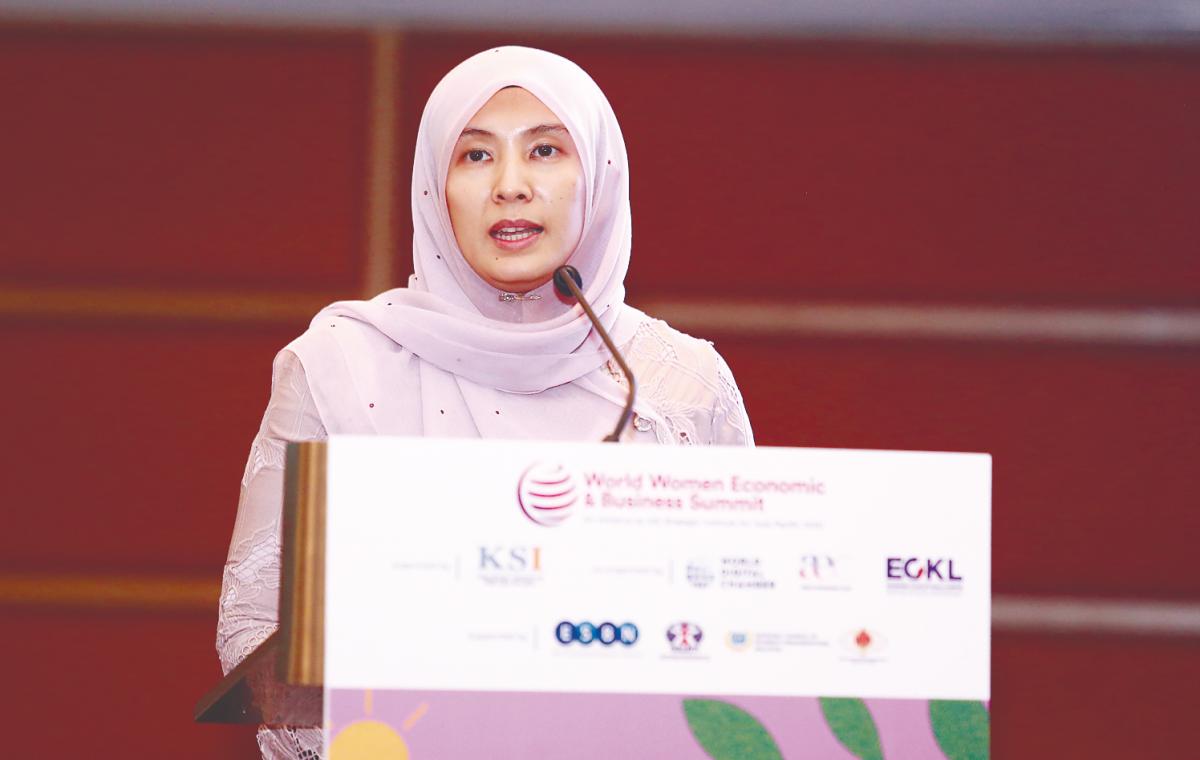KUALA LUMPUR: Despite Malaysia’s progress in women’s education, structural inequalities from algorithmic bias to unpaid care burdens continue to obstruct women from participating in the economy, said leaders at the World Women Economic and Business Summit 2025 today.
Former special adviser to the finance minister Nurul Izzah Anwar said systemic barriers, including unpaid care responsibilities and emerging digital biases, are keeping millions of Malaysian women out of the labour force despite rising education levels.
“As of 2022, women’s labour force participation remains at 55.8%, well below the government’s 60% target and far behind the 82% participation rate for men,” she said.
“Millions of women are absent from the workforce not because of a lack of ambition or talent, but because of the disproportionate burden of caregiving that still falls on their shoulders.”
Citing a 2018 Khazanah Research Institute Time Use Study, Nurul Izzah noted that Malaysian women spend over 60% more time on unpaid care work compared to men. Globally, women carry out 76.4% of such work, often without institutional recognition.
She stressed that reforms must go beyond quotas and visibility to address deeper issues of economic valuation and structural support.
“We must reimagine how our economy values care, how society shares responsibility, and how businesses define success, not merely by profits, but by purpose,” she said. “Our brilliance must be matched with a moral compass.”
Nurul Izzah also raised concerns about gender bias in artificial intelligence (AI) and its implications for employment, finance and legal systems.
“Current AI systems, used in job matching, credit assessments and facial recognition, often replicate historical gender biases embedded in the data they are trained on,” she said.
“We need diverse datasets, regular bias audits and cross-sector cooperation to ensure tech development is inclusive from the ground up.”
Deputy Director-General of Education (Policy and Curriculum) Dr Rusmini Ku Ahmad said Malaysia has achieved near-universal access to education for girls, with female enrolment surpassing males in public universities. Yet, this has not translated into economic equality.
“Despite leading in educational attainment, only 56.2% of women are in the workforce. Closing this gap could raise Malaysia’s per capita income by more than 25%,” she said.
To address this, the Education Ministry is supporting gender-responsive workplace policies in collaboration with the private sector.
In May, Malaysia launched the inaugural Women’s Empowerment Principles Corporate Action Lab, providing companies with a global framework to build inclusive work environments.
Additionally, the newly established Asia Women’s Economic Empowerment Centre in Kuala Lumpur will spearhead gender-inclusive policies across the region, including better access to finance for women-led micro, small and medium enterprises.
Rusmini called on all sectors, including government, business, education, and families, to challenge outdated norms and actively build environments where women can thrive.
“Every investment in women’s education is an investment in Malaysia’s economic competitiveness,” she said.
“We are not just building tomorrow’s leaders, we’re building tomorrow’s economy.”









